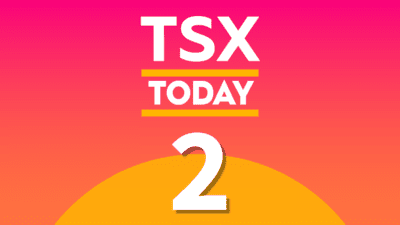It’s no mystery that bonds have been taking a huge dive this past month, as the Vanguard Canadian Aggregate Bond Index (TSX:VAB) dropped nearly 3%, which is huge for a bond fund. Bonds are considered to be some of the safest investment instruments, but this is a huge misconception. It depends on what “safety” really means for the individual investor.
As a young investor, it may actually be riskier to have a huge holding in bonds, as many are finding out right now. Not only are you giving up future returns in exchange for lower volatility, but you may be putting your retirement in jeopardy.
Bonds are great if they’re used properly as a part of a diversified portfolio that’s customized for the individual investor. Say you’re a retiree; you can’t afford sudden losses brought on by stocks, and if there are dividend cuts, that could mean you’ll have to come out of retirement. Bonds should be a large chunk of your portfolio, but you should never be 100% invested in bonds because that increases your risk and hurts your returns.
Overexposure to bonds is not safe; in fact, it’s quite risky
Former hedge fund manager Jim Cramer believes that a young person has no reason to have bonds and that they should be entirely in stocks. I disagree with this viewpoint because if there’s a market crash, you’ll need some other instrument to respond with. Market crashes are like death: they’re inevitable. A crash could occur sooner than we think, or maybe it’s a long way down the road. Nobody knows, but it’s always important to prepare for this scenario because it is coming. We just don’t know how or when.
As Warren Buffett once said, “Bonds should come with a warning label.” This is very true, and bond investors are coming to realize that “safety” is a misconception if bonds are not used properly as a part of a diversified portfolio. Long-term bonds are very risky right now, and I believe they’re overvalued. We may already be in a bond correction, and those fearful investors that loaded up on bonds before the U.S. election are getting hurt badly right now.
While I believe that bonds should comprise of at least 20% of your portfolio, know that there are risks associated with bonds and that no investment is free of risk. Even GICs have opportunity costs associated with them.
Bonds are overvalued and could continue to correct
Like stocks, bonds need to be considered for their value too; right now there’s no value to be had, and it looks to be a long way down. Take a look at Fairfax Financial Holdings Ltd. (TSX:FFH). The stock is known as a safe stock that is hedged against a market downturn, but remember, if the market goes up, that means lost returns for Fairfax. The same can be said for holders of bonds and bond funds.
Prem Watsa is a “doomsday investor.” He’s always waiting and hoping for a market crash, but preparing for the worst could actually cause the worst to happen if things don’t go the way you want.
What should you do if you’re overexposed to bonds?
Reduce your exposure and get some common stock or cash in your portfolio. Your situation is unique to you, so you should visit a financial advisor and get proper diversification in your portfolio because an all-bond exposure is simply not safe, as many believe it to be.







